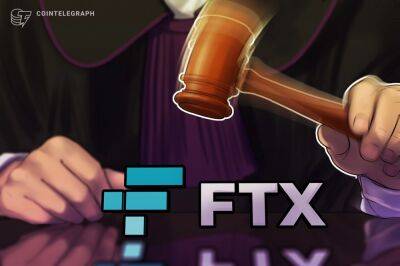Judge dismisses proposed class action suit alleging Coinbase securities sales
A proposed class action suit against cryptocurrency exchange Coinbase, Coinbase Global and CEO Brian Armstrong alleging unregistered securities sales was dismissed in the United States District Court of Southern New York on Feb. 1. The suit, filed on March 11, claimed that 79 of the tokens listed on Coinbase were securities being sold without proper registration and customers were not warned of their risks.
The suit brought charges under the Securities Act of 1933 and Exchange Act of 1934 and used the Howey test, established by the U.S. Supreme Court in 1946, to identify the tokens. The plaintiffs argued for each token individually. In his decision, Judge Paul Engelmayer stated regarding Howey claims:
The judge assumed the tokens are indeed securities in his analysis and did not consider claims based on Howey further. He stated that the Coinbase user agreement contradicts the plaintiffs’ claim that Coinbase was the “actual seller” of the tokens. Furthermore, Coinbase did not solicit sales under a strict legal definition. Thus, claims under the Securities Act were dismissed.
The judge stated that the claim under the Exchange Act alleged the presence of a contract involving a prohibited transaction. He dismissed that claim by noting that only the user agreement was liable to that claim, and it “did not necessitate illegal acts.” The judge cited case law throughout the analysis.
BREAKINGClass action lawsuit against @coinbase dismissed by U.S. Judge$COIN up 5% on the news pic.twitter.com/3IXf8m6Kus
The plaintiffs’ representation apparently became aware of the flaw in their argument after the suit was initially filed. The March 11 suit was an amended complaint that did not make reference to the user agreement, but that did not
Read more on cointelegraph.com

![Polygon [MATIC]: Can gaming activity improve DeFi woes? Decoding… - ambcrypto.com - city Santiment](https://gocryptonft.com/storage/thumbs_400/img/2023/3/2/89923_xvnml.jpg)


![Cardano [ADA] retests $0.35 support area, but indicators favor bears - ambcrypto.com - city Santimentthe](https://gocryptonft.com/storage/thumbs_400/img/2023/3/2/89919_fvoxt.jpg)










